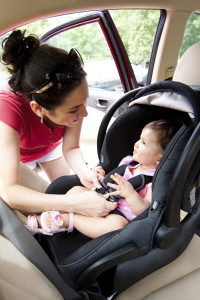Rancho Cucamonga Child Custody Lawyer
Handling Child Custody and Other Family Law Issues Throughout Southern California

Child custody is an emotional and sometimes divisive issue. During a divorce, it is critically important to keep your child’s best interests in mind and come up with a parenting plan that everyone agrees to. Throughout negotiation, mediation, and the court process, it is crucial to consider what is best for your child and how that can be achieved.
Soheila Azizi and Associates, P.C. is proud to be your law firm for life. We are committed to keeping your children the highest priority, and we will work with you to develop an effective custody arrangement. We have intimate knowledge of the agreements, orders, and actions involved in a child custody case, and we will use that knowledge to come up with a creative, helpful solution.
Soheila Azizi and Associates, P.C. is proud to represent mothers, fathers, and children throughout the divorce process. Whether you want to pursue mediation or a formal court hearing, we will develop convincing and well-supported arguments that give you the best chance of a successful outcome. Call (909) 484-9992 or contact us online to speak with one of our family law attorneys today.
Types of Child Custody

There are a number of different types of child custody, including:
- Physical custody, predictably, deals with where the child will live. When a parent has sole or primary physical custody, the child will live in his or her home for the majority of the time. (The other parent will be allowed visitation time with the child, depending on the parenting plan developed.) Parents can also have joint physical custody if they live close to each other; this allows both parents to live with the child (according to the custody schedule) and, ideally, it allows the child to maintain a somewhat normal routine.
- Legal custody refers to the right—and obligation—to make decisions about the upbringing of the child. Oftentimes, parents are awarded joint legal custody so they can both make decisions about their child’s schooling, religion, and medical care. A parent can be awarded sole legal custody if he or she can prove the other parent is unfit to raise the child or if the other parent refuses to communicate about important issues (e.g. changing schools or changing doctors).
- Sole custody awards physical or legal custody to one parent. Sole custody is most commonly awarded when one parent is proven to be unfit, such as when one parent is addicted to drugs, is an alcoholic, or has neglected or abused the child in the past. Many courts try to avoid sole custody arrangements whenever possible; it is preferable, in the court’s eyes, to award one parent physical custody and still allow the other parent to participate in the child’s life in another way. This often means awarding joint legal custody to both parents (so they can both be involved in decisions regarding the child) and establishing a visitation schedule that allows the non-custodial parent to be involved in the child’s life.
- Joint custody can manifest in three main ways: joint legal custody, joint physical custody, or joint legal and physical custody. Joint legal custody is extremely common, as it allows both parents to be involved in the decision-making process. Joint physical custody agreements are rather common and allow the child to spend time with both parents; a joint custody arrangement may include a couple days each week, plus alternating weekends, at one parent’s house, or it could involve alternating months or years spent with each parent. It is important to note that joint custody requires a high level of cooperation between parents, and any friction between parents will surely be apparent to the child.
Determining Child Custody
 California law dictates that judges must award custody based on the “best interest of the child.” This requires taking several factors into account, including:
California law dictates that judges must award custody based on the “best interest of the child.” This requires taking several factors into account, including:
- The child’s age
- The child’s health
- The child’s emotional ties with his or her parents
- The parents’ ability to care for the child
- Any history of substance abuse or family violence
- The child’s ties to school, home, and his or her community
There are different ways to go about obtaining a child custody order, depending on the parents’ relationship with each other and willingness to work together. If both parents can agree on a custody arrangement, they can write up the parenting plan together (with the help of an experienced family lawyer). Once a judge approves it, it will become a legally binding parenting plan.
If the parents are unable to agree on a custody arrangement, they can use a family law mediator to help the process along. Mediation is a less expensive, less formal, and more amicable alternative to traditional divorce litigation, and it gives both parties more control over the outcome. An experienced mediator can help you identify problem spots and work through them to develop a parenting plan you both agree to. Once the plan is developed, a family court judge can sign it and turn it into a legally binding agreement.
 If parents are still unable to agree, they can take their case to family court. At this point, each parent (or their lawyer) will make their case and the judge will make a final determination as to the custody arrangement.
If parents are still unable to agree, they can take their case to family court. At this point, each parent (or their lawyer) will make their case and the judge will make a final determination as to the custody arrangement.
In certain cases, a California judge may order a child custody evaluation, also known as a “730 Evaluation.” This evaluation serves to examine the mental health and parenting ability of one or both parents involved in a divorce. A 730 Evaluation helps the judge and the court determine the best interest of the child, and it is typically conducted by a psychiatrist, a psychologist, a qualified social worker, or a family therapist. The court can order a 730 Evaluation for a number of reasons, including:
- Substance abuse problems
- Suspected child abuse
- Mental health issues
- Questionable parenting practices (that could have a negative impact on the child)
- Inability of the parents to agree on a custody arrangement
- Disagreement between the parents about relocating the child
- Disagreement between the parents about the child’s upbringing
Once the evaluation is complete, the child custody evaluator will put his or her findings into a formal report, which the judge will use to make a final determination.
Soheila Azizi and Associates, P.C. is proud to be your law firm for life. Whether you are interested in mediation or traditional litigation, we are here to help you through the process. We are proud to represent mothers, fathers, and children in Rancho Cucamonga, San Bernardino, and throughout the Inland Empire. Call (909) 484-9992 or contact us online to speak with an experienced family lawyer today.
When you want sound, authoritative legal advice and effective and zealous representation to help protect your interests, the Law Office of Soheila Azizi & Associates, P.C. is ready to help.
10213 Foothill Blvd.
Rancho Cucamonga, CA 91730
(909) 484-9992
Mon - Thu: 8:30 am - 5:00 pm
Friday: 8:30am - 4:00pm
We are available 24/7 to assist you virtually.
